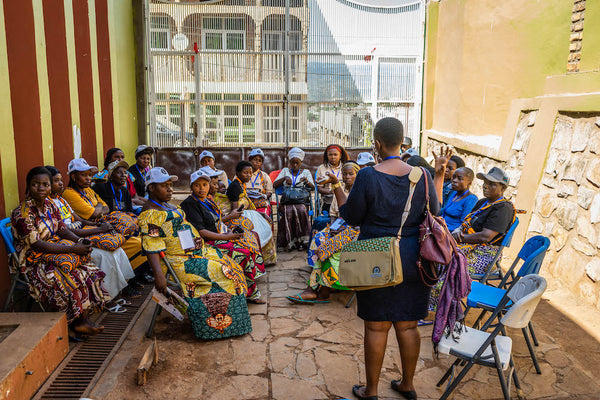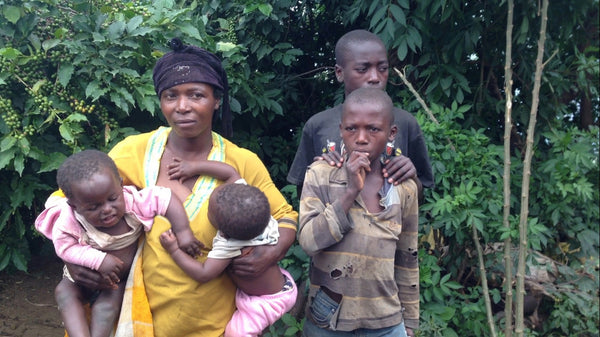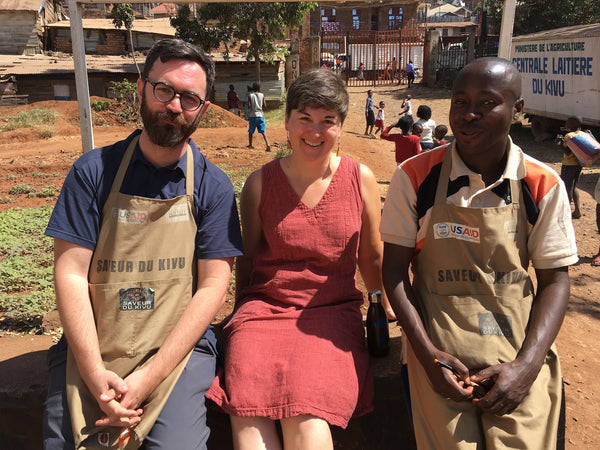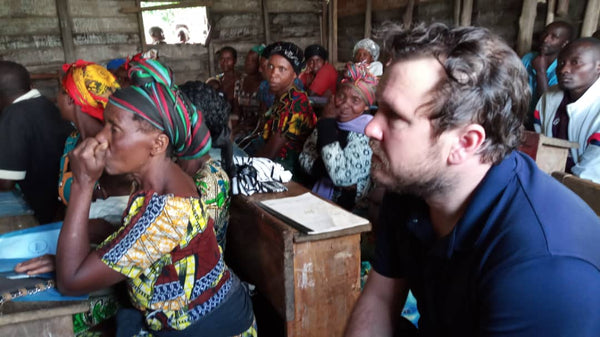Coffee could change the world. But first, we need a disruptive innovation to evolve our trading system. This post is the final installment in a four-part series diving deep into the issue of true sustainability in the coffee industry, written by HG cofounder Chris Treter.
[ Part 1: Inequality Rules the World | Part 2: Price Matters a lot, and it's just a Piece of the Puzzle | Part 3: Let's Put People First ]
//
Consider:
Then you have the hundreds of millions who, although not living in abject poverty, still do not have a reasonably comfortable living standard, with access to good education, a safe home, and health care for themselves and their families.
[Thanks to Chandran Nair and the Stanford Social Innovation Review for those stats and other great insights on the issue of sustainable development. In response to the challenges above and others, the UN has recognized collaboration and cooperatives as essential to achieving the 2030 Sustainable Development goals.]
When our values align to transcend competition between specialty coffee importers, roasters, and retailers, collaboration across the supply chain offers benefits that standard isolated markets can’t: shared learning, lower individual expenses, and enhanced exposure. In turn, those who invest in this type of collaboration build their expertise and brand perception, better assisting personal and company growth.
Even the largest funders are taking notice. Rather than providing funding to public/private partnerships that benefit stakeholder interests, a new approach is emerging: prioritizing cross-sectoral, multi-stakeholder collaborations as the means to improve economic opportunity for an industry’s entire supply chain. One such example is Lake Kivu Coffee Alliance, offering medical support like prosthetics and opportunities for survivors of conflict in the Kivu region.

Coffee producers gather for discussion at Saveur du Kivu 2018
In early summer of the past three years, Zawadi and many of her neighbors have traveled south along Lake Kivu to Bukavu, where they’ve participated in Saveur du Kivu, an annual specialty coffee cupping competition and supply chain workshop co-founded by Higher Grounds. Through SdK and other partner nonprofit initiatives, government representatives, international buyers, growers, funders, artists, and academics are working together to build up a specialty coffee industry that is currently estimated at 1/10 its production potential. Free trainings, access to potential buyers, funders, and conversations from the presidential office to Zawadi are creating an engaged network that is accessing global supply chain expertise throughout the year, putting gender equality and the small scale grower at the center of the construction of an industry with some of the most sought after coffees in the world.
Coffee buyer Kyle Tush of Counter Culture Coffee, Higher Grounds director of coffee Jennifer Yeatts, and Ishmael Lipanda, lead cupper for the Muungano Cooperative in South Kivu, DRC at Saveur du Kivu 2018
What’s more, American and European musicians, photographers, and filmmakers are working with local cultural creatives to produce multimedia content funded by coffee industry partners and beyond as a means to increase economic opportunity and peace with the sights, sounds, and voices of Zawadi and her neighbors. (Check out Heavy Color’s River Passage for one such example.) Capacity-building in the arts is proving to motivate the masses here and abroad by introducing an international audience to authentic people and places, building a better tomorrow that rises from the ruins of two decades of conflict that left more people dead than all other wars combined since World War II. Those stories are driving waves of ecotourists who wait at the borders to visit the flaura, fauna, and people of the last great place on earth still without the security, basic transportation, and lodging infrastructure to support its future as a top tourism destination. By combining this recent exposure with an investment in a community-centric industry model, consumers and companies around the world are increasingly funding and working with organizations that bring the profits back to the people that helped create them.
Herein lies the opportunity going unnoticed in the coffee industry. Specialty coffee can demonstrate that responsible trading relationships require that we invest in the communities where coffee is grown as the best means to securing supply and increasing demand. It is simply smart business in a rapidly evolving world. This kind of trade evolves past “upskilling” labor and increasing production as the best strategy to increase “sustainability.” We generally hear a lot of talk about sustainable development, but the focus is nearly always on the “sustainable” and less on the details of the development. Chandran Nair, cited earlier, astutely defines sustainable development as ”the improvement of living standards and provision of basic needs in a manner that does not consume or abuse resources at a faster rate than they are replenished and that also preserves the right of future generations.” The living standards and basic needs come first, and then we can talk about our methods of approach. Those future generations cannot be undervalued; they are at the heart of coffee’s future. In short, we need to pursue sustainability and development at the same time.
As long as we continue to embrace business models that encourage global inequality and perpetuate these statistics, we aren’t anywhere close to truly sustainable trade. It’s time we call ourselves to task and start constructing the next generation of the maturing specialty coffee industry. Ending global inequality and extreme poverty need not rely on the actions of governments and aid organizations. It must not wait for the demise of tax havens, corruption, and greed. Equality and prosperity are solely dependent upon our actions--yours, mine, and Zawadi’s. It’s time to get to work.
HG director Chris attends a literacy workshop facilitated by On the Ground in South Kivu, DRC, February 2019
Power lies in the hands of everyday people collaborating in the emerging new economy, where authentic, sustainable products are sought by millennials, who happen to be the world’s largest consuming demographic. The impact of these people can be authentically shared through ongoing digital content, demonstrating the perspectives of Zawadi, and others like the women attending the workshops pictured above, as valuable voices in the growing specialty coffee industry.

Zawadi and her children
I can still feel Zawadi’s eyes rest on me as I often savor a swallow of her coffee from the comfort of my home. For me, true inspiration lies in the faces of those who struggle, like she does, against all odds to produce the delicious aromas and flavors that enter my thoughts immediately upon waking each day. It’s time we rise and meet their gaze.
---
Chris Treter co-founded Higher Grounds Coffee 17 years ago after completing his graduate thesis on the impact of commercializing coffee in the Mexican state of Chiapas. He is a founder of On the Ground Global, an international NGO addressing the root causes of poverty in coffee farming communities around the world. He also founded Saveur du Kivu, the Democratic Republic of Congo’s annual specialty coffee cupping competition and value chain conference. He is also the former interim General Manager of Co-op Coffees, the only green bean importing cooperative in the world, and as such Higher Grounds is an owner. Chris holds a Masters degree in Organizational Management for Social Change from the School for International Training.






